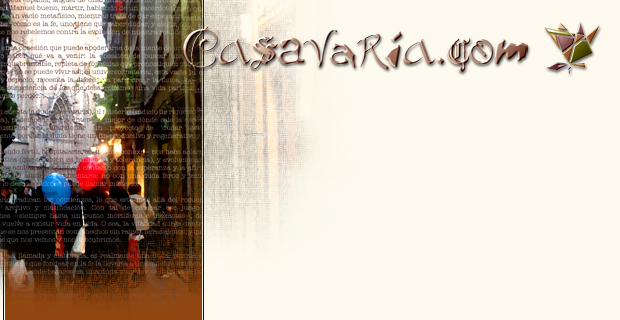The film The Hours is not about what most people seem to think. The common wisdom is that this is a film about a writer, and about the effects of her writing over time... or else that it's about an emotional struggle that is transferred from person to person through a series of more or less tenuous or intimate relationships... or that it has to do with the victimization of innocent and fragile souls by a harsh and careless world. But I think it probes much deeper than any of the above crises, and touches a fundamental problem of human equilibrium, that is, an existential balance based in the enigma of an elusive raison d'être.
There is an intuitive recognition of any breach in this equilibrium; all seem to notice that there is something "wrong" with Virginia (at certain moments of detachment, or immersion), or with Laura Brown, or with Clorissa, or with her beloved poet. Suicide, as Woolf tells it, serves as a message: that life has inherent value. In other words, intellectually, she grasped the futility of suicide, and sought to use it as a literary tool, a narrative inflection point around which the bulk of a social, moral and philosophical commentary could congeal without exceeding the weight of the story itself, without pushing the sublime into the ridiculous.
This literary notion of the suicide as a messenger depends upon the error of the suicide: the message is that there is an existential obligation to "stay alive for each other", an obligation based in the beauty of life, not in maintaining webs of untruth and artifice (which are meant to distract from the silence, from the question of emptiness).
There is a central question of roles versus essence: I am, but I am not as you say I am, not as you say I must be... Virginia's story is continued lives on in her work, and touches Laura Brown, who more than taking up the thread of the story, finds a place for her quiet but pervasive malaise, a home, a way of identifying her own demons.
Laura Brown lived her whole life inside "the moment", the impossible, bent space of philosophical enowning (coming into her own, taking ownership of a self, a life—this is the "moment" of import), lived in a way that no one could, or would see. This intellectual-emotional struggle was the crux of Woolf's own contemplations, the endlessly receding Moment of becoming, the strange process of facing fact, and finding that more than real, the world is thoroughly absurd, disturbed.
The distance of the Moment (call it birth, happiness, meaning) eventually overcomes the poet, weakened by AIDS and by a lifelong fear of abandonment. In the light of the relationship between Clorissa and her poet, we see that adulthood itself (what lies beyond innocence) is charactarized by a temptation to recede into the "false comforts" provided by convention—the lie of the import of the fabric of built-up but fictitious obligation and protocol (the chivalry of a zealous domestic order).
Virginia seems to be conjuring every shred of a shredded will to say "There is no such obligation" to fulfill menial deceptions in order to assuage the emptiness of others. She seeks something more true, more lasting, more connected. Children, by contrast, are innocent enough to see the "trouble", to be both stirred up and sympathetic. They perceive pain for what it is, whereas adults perceive its expression as a threat.
The siren's cry: the boy calling out to his mother, to the source, searching for his origin, the geography of his existence, the meaning of place and direction. Near the end, he sees the specific link between the city's sirens ("the violent jolt") and that basic human cry: the beginning and the end of language. This cry is like the kiss that searches for an intake of life, an expression, a relief.
"Dan" thought of the girl in whom he recognized the Moment. It was his silent cry, in answer, the root of his faith, the thing that got him through the alienation and the terror of war. Ultimately, one is lucky to find a way to bring one's cry to life. There is no despair more common that to find one cannot make the cry into satisfaction, into life. Authenticity makes the difference, cuts a path through thickets of unthinking and submission. The hours are like a river, a flood. Virginia lived a life of love for the hours, against the Hours, for the Moment, against the venial obligation of half-measures.
The eggs cracking: this is obligation ringing out... a recognition of the call coming back unheard, unaccepted... it is the angst of awakening to the silence the underscores the noise, the sacred, unbearable silence... A BUZZER INTERRUPTS (someone is there, ready to enter, to be seen and heard): it is the cry that interrupts the Hours, hints at a Moment. Each individual peels away from the mud, looks hopefully outward... maybe now...
© 2003 Joseph Robertson
![]()
All text & images Copyright © 1995-2008 Casavaria,
or listed contributor :: Casavaria Languages: Català | English | Español | Français | Galego | Italiano | Português | Svenska










